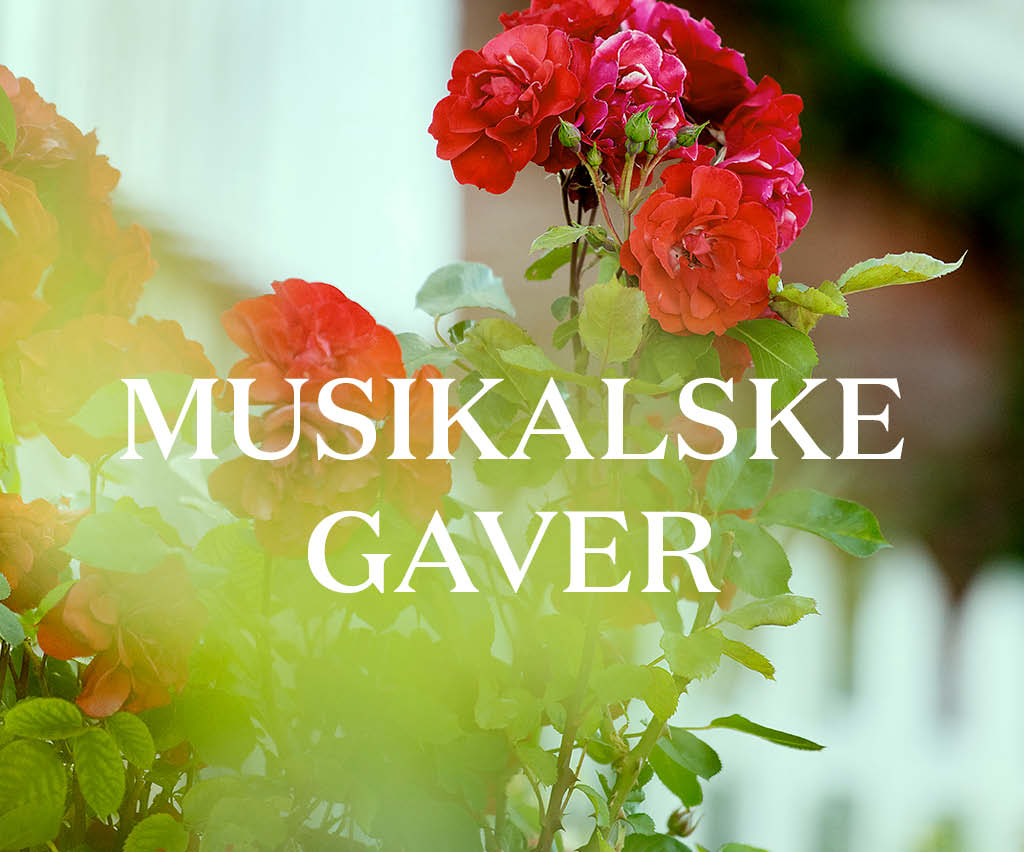Musical gifts
Friday, June 28 2024 6 pm
In the realm of gifts, few can claim to hold as much emotional depth and historical significance as a piece of music. Historically, composers have frequently dedicated their works to those they hold dear: friends, family, students, and colleagues. These musical gifts not only signify a personal connection but also leave a legacy that often transcends the composer’s own life.
One of the most notable examples occurred in 1786, when Wolfgang Amadeus Mozart composed a trio for clarinet, viola, and piano, dedicating it to his student Franziska von Jacquin. The von Jacquin family shared a close bond with Mozart, providing a space for intimate house concerts where this trio was first performed. The event was a collaborative effort, featuring Franziska von Jacquin at the piano, Anton Stadler on clarinet, and Mozart himself on viola, symbolizing the deep connections forged through music.
The practice of dedicating music as a form of homage or tribute is also reflected in the story of Carl Czerny and Pierre Rode. Czerny, inspired by Rode’s piece «Air varié,» composed his own variations (op. 33 ‘La Ricordanza’) as a dedication to the French violinist. Although it remains unclear if Rode ever listened to Czerny’s variations, this gesture highlights the significance of thoughtfulness and respect among peers in the musical world.
Romantic and platonic relationships within the musical community have often resulted in the creation of remarkable works. The marriage of Clara Josephine Wieck and Robert Schumann stands out as a union that significantly impacted the European artistic scene. Clara, an extraordinary composer in her own right, along with Robert, formed what many would consider an artistic power couple of their era. Their relationship, coupled with the affectionate connection they shared with Johannes Brahms, spurred the creation of numerous unforgettable pieces, showcasing the profound influence of personal relationships on musical creativity.
Another intriguing story of musical dedication is that of Émile Lemoine, who requested Camille Saint-Saëns to compose a piece featuring the trumpet for his chamber music salon, La Trompette, in Paris. Saint-Saëns’s response was a «Christmas gift» titled Préambule for trumpet and strings, a piece that not only fulfilled the salon’s thematic request but also promised further musical explorations in subsequent movements. This work, premiered in a setting designed to celebrate and elevate chamber music, serves as a testament to the collaborative spirit and creative exchanges that define the musical community.
Through these examples, it becomes evident that music serves as a powerful medium for expressing affection, respect, and admiration. Musical gifts carry with them stories of personal connections, artistic collaborations, and the timeless nature of music itself, making them some of the most meaningful gifts one can give or receive.
WOLFGANG AMADEUS MOZART
(1756–1791)
Andante
Menuett
Rondeaux – Allegretto
Julian Bliss – clarinet
Jano Lisboa – viola
Håvard Gimse – piano
CARL CZERNY
(1791–1857)
CARL CZERNY (1791–1857)
Variations on a Theme by Pierre Rode, op. 33 (1820)
La Ricordanza
Yeol Eum Son – piano
ROBERT SCHUMANN
(1810-1856)
Dichterliebe, op. 48 (1840)
Im Wunderschönen monat Mai
Tine Thing Helseth – trumpet
Gunnar Flagstad – piano
CLARA SCHUMANN
(1819-1896)
Op. 13, nr. 1 (1844)
Ich stand in dunklen traümen
Tine Thing Helseth – trumpet
Gunnar Flagstad – piano
ROBERT SCHUMANN
(1810-1856)
Dichterliebe, op. 48, nr. 10
Hör Ich das Liedchen Klingen
Tine Thing Helseth – trumpet
Gunnar Flagstad – piano
JOHANNES BRAHMS
(1833-1897)
Op. 32, nr. 9 (1865)
Wie bist du, meine Königin
Tine Thing Helseth – trumpet
Gunnar Flagstad – piano
ROBERT SCHUMANN
(1810-1856)
Dichterliebe, op. 48, nr. 11
Am leuchtenden Sommermorgen
Tine Thing Helseth – trumpet
Gunnar Flagstad – piano
CAMILLE SAINT-SAËNS
(1835–1921)
Septet in E-flat Major (1889)
Préambule – Allegro moderato
Menuet – Tempo di minuetto moderato
Intermède – Andante
Gavotte et Finale – Allegro non troppo
Tine Thing Helseth – trumpet
Kristine Balanas – violin
Sarah Christian – violin
Jano Lisboa – viola
Maximilian Hornung – cello
Frode Berg – duoble bass
Yeol Eum Son – piano

